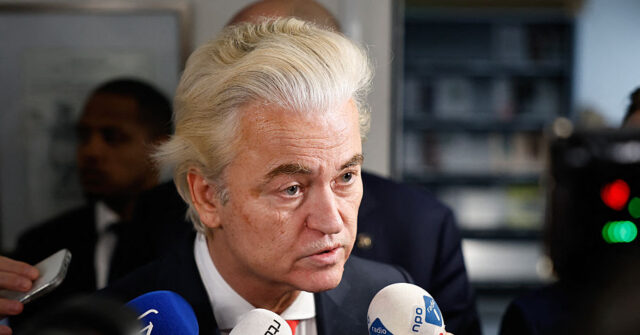Hol
Well-known
There may be just a few thousand votes between the two top parties in the Dutch national elections as the very final results come in for the dead heat vote.
With 99.7 per cent of votes counted, at the time of publication both Geert Wilders’ right-wing-sovereigntist Party For Freedom (PVV) and Rob Jetten’s centre-left-liberal Democrats 66 (D66) both have 16.7 per cent of the national vote. This is enough to give them 26 parliament seats each, well short of the 76 seats needed to form a government.
Until the final votes are counted it is unclear which party will edge out the other as the largest. The late votes, which include many in capital Amsterdam and those of Dutch citizens abroad, may favour D66 and the party may yet be able to — just — claim to be the winner with a margin of just a few hundred votes from a turnout of over 10 million.
Nevertheless, at the time of publication Mr Wilders’ PVV is ahead by a little less than 2,000 votes nationwide.
While Wilders can take some solace in his joint-first finish, it is a far cry from his 17-seat lead after the 2023 general election. Like in many European countries, almost all other parties agree to maintain a “cordon sanitaire”, refusing to work with any right-wing populist party such as the PVV to form a government.
It has often been the case that even border-control conservative parties would rather enter government with the left than work with a party to their right. Yet the scale of his convincing win then forced other right-wing parties to break the cordon and cooperate, out of respect for the democratic result.

 www.breitbart.com
www.breitbart.com
With 99.7 per cent of votes counted, at the time of publication both Geert Wilders’ right-wing-sovereigntist Party For Freedom (PVV) and Rob Jetten’s centre-left-liberal Democrats 66 (D66) both have 16.7 per cent of the national vote. This is enough to give them 26 parliament seats each, well short of the 76 seats needed to form a government.
Until the final votes are counted it is unclear which party will edge out the other as the largest. The late votes, which include many in capital Amsterdam and those of Dutch citizens abroad, may favour D66 and the party may yet be able to — just — claim to be the winner with a margin of just a few hundred votes from a turnout of over 10 million.
Nevertheless, at the time of publication Mr Wilders’ PVV is ahead by a little less than 2,000 votes nationwide.
While Wilders can take some solace in his joint-first finish, it is a far cry from his 17-seat lead after the 2023 general election. Like in many European countries, almost all other parties agree to maintain a “cordon sanitaire”, refusing to work with any right-wing populist party such as the PVV to form a government.
It has often been the case that even border-control conservative parties would rather enter government with the left than work with a party to their right. Yet the scale of his convincing win then forced other right-wing parties to break the cordon and cooperate, out of respect for the democratic result.

Historic Knife-Edge Result in Dutch Elections: Joint-First For Geert Wilders
There may be just a few thousand votes between the two top parties as the very final results come in for the dead heat vote.
